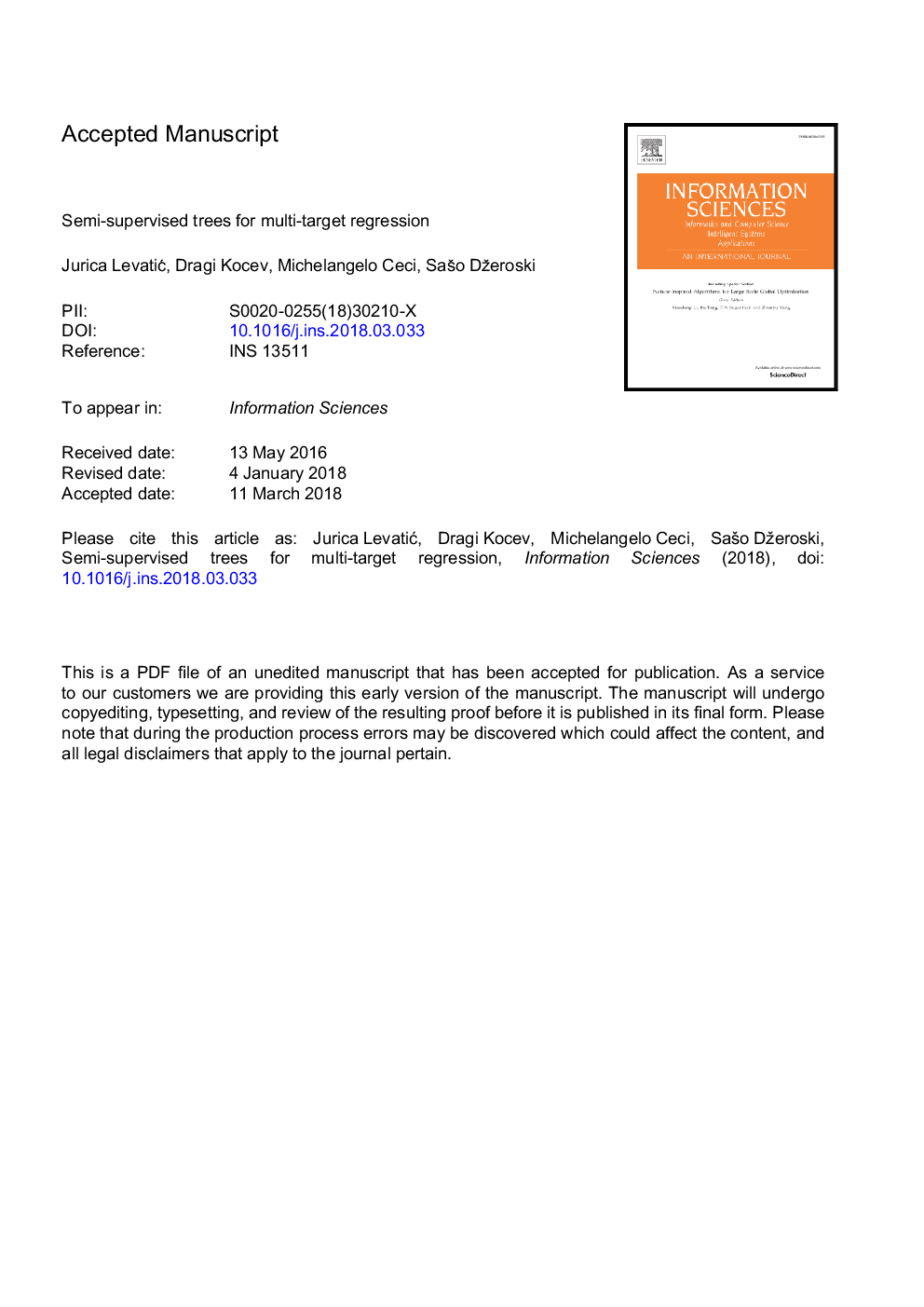| Article ID | Journal | Published Year | Pages | File Type |
|---|---|---|---|---|
| 6856460 | Information Sciences | 2018 | 42 Pages |
Abstract
This paper presents an extension of predictive clustering trees for MTR and ensembles thereof towards semi-supervised learning. The proposed method preserves the appealing characteristic of decision trees while enabling the use of unlabeled examples. In particular, the proposed semi-supervised trees for MTR are interpretable, easy to understand, fast to learn, and can handle both numeric and nominal descriptive features. We perform an extensive empirical evaluation in both an inductive and a transductive semi-supervised setting. The results show that the proposed method improves the performance of supervised predictive clustering trees and enhances their interpretability (due to reduced tree size), whereas, in the ensemble learning scenario, it outperforms its supervised counterpart in the transductive setting. The proposed methods have a mechanism for controlling the influence of unlabeled examples, which makes them highly useful in practice: This mechanism can protect them against a degradation of performance of their supervised counterparts - an inherent risk of semi-supervised learning. The proposed methods also outperform two existing semi-supervised methods for MTR.
Related Topics
Physical Sciences and Engineering
Computer Science
Artificial Intelligence
Authors
Jurica LevatiÄ, Dragi Kocev, Michelangelo Ceci, SaÅ¡o Džeroski,
